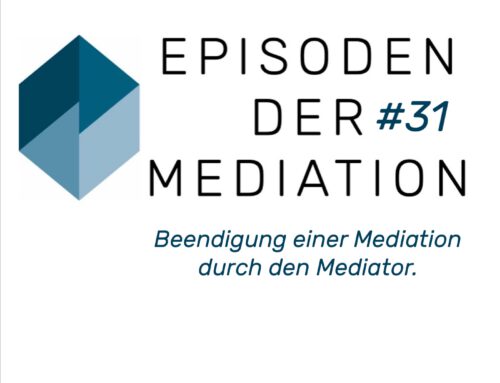Photo by Sachit Rathi on Unsplash
Heuristics – What can be our downfall in decision-making situations
How we make decisions and what can be our downfall
You have to decide! The position is vacant. Your company urgently needs another good employee. Everything is ready – and there are already several applicants who all seem to have their merits. Of course, you are not sure.
How do you decide? How do you proceed? How can you be sure?
The following may help you „Ihr Bauchgefühl“. You make the decision „simply on instinct". To be on the safe side, you'll probably have conversations, ask questions, play a little poker, but at any rate you'll already be beating about the bush. You're an old hand, you're not easily fooled.
Perhaps you will also try, criteria that are as objective as possible to be consulted. Ask them to describe previous successes, take a close look at the candidate's performance or possible test results. Or you can carry them out yourself. You are already very familiar with a large number of personality tests. In short, you won't make the decision easily or at least do what you can so that others can see that you haven't made it easy for yourself. In a working world characterised by Protestantism, hardly anyone will dare reproach you if you fail: Try hard – and nobody will judge you!
But you probably don't have the time you'd like to make this decision anyway. You are under considerable time and success pressure. You cannot put in the necessary effort and allow all the necessary information to mature into a logical decision. You want to. But you can't. Too much information already exists. And some is still missing. And you don't have any more time on top of that. You simply don't have the time to work through all the information in a stringently logical way. Welcome to the human world.
And everything could be so much easier if you didn't want to do so damn many things right! And yet, one consolation: even then you made mistakes. And that's what we're talking about now.
Psychology of the decision
We know pretty well today that human judgement and decision-making by no means follow the rules of optimal, rational decision-making. Wherever we can, we make things easier or simpler than necessary. This is true even when we take detours. We hardly ever notice our mental shortcuts ourselves. And when we do realise, we check whether we can rationally justify them. If not, we come up with an excuse if others have also noticed the shortcut. We hardly ever make rational decisions that can be explained and understood from a scientific point of view. But the question is this, how we arrive at our decisions and judgements, which we then cheerfully implement in the world?
Decision-making situations in our everyday lives are usually characterised by the fact that we do not have sufficient information to be able to draw strictly logical conclusions from it.
Instead of collecting missing information and incorporating it into our decision-making, we help ourselves:
- mental shortcuts
- Simplifications
- General rules of thumb
The kit that holds everything together consistently here is called: Probability.
Without probabilities, we would probably go mad. But we rely on our „calculations“, which at least do not allow our desired outcome to be outside of all life experience. And, hey, sometimes we even get lucky and get the optimum. In any case, it somehow feels right. It is precisely these „vague calculations“ that are known in psychology as Heuristics be labelled.
In a nutshell: What are heuristics?
The word heuristics comes from the Greek word "heuriskein".
This means „find“ or „entdecken“. You probably know the exclamation „Eureka!“, which also comes from…
Heuristics are mental strategies, which like Rules of thumb help – without further logical conclusions – to make decisions and judgements.
With their help „we solve“ the problem that we have to make our decisions and judgements even though we
- too little time and / or
- only have limited knowledge at their disposal.
We often use heuristics unconsciously and automatically, especially when the basis for our decisions and judgements is uncertain (uncertain, ambig) or unmanageable (complex, volatile).
Please also read our Contribution to the VUKA world.
Heuristics even help us not to become aware of our hopeless, dramatically uninformed situation and thus remain capable of making decisions! They are neither good nor bad. They serve us. We decide whether for better or worse – but of course with their help. There is no escape from them. This is precisely why it is so important to know them well!
We have to make decisions all the time – always and everywhere!
We are constantly exposed to situations in which we have to make a decision quickly. The worst thing is that we feel we have to make this decision. That's the pitfall of freedom of choice. It not only asks: „What decision will you make? “, but at the same time dictates it: „Entscheide!“
You want to go out with a friend in the evening: Which pub? Which neighbourhood? By bike, bus or taxi? Or on foot through the park? Are there other people on the bus or underground? Sit next to them or further away? Or is it best to stand still, close to the door?
What are the (motivating) reasons for each individual decision that you make, sometimes without realising that you have just made another decision?
Your decisions also depend on probability calculations that you make with the help of heuristics. And the benchmark for your calculations is based on your need for safety: do you feel safer sitting next to people and not so vulnerable on your own or would it be better to stand at the door because „ this guy seems rather scary“ to you…? But you don't even know this guy! Neither intensively, nor in all its facets. And yet – would it be worth the risk?!

At the moment of making a decision, we usually lack two things: time and information. That's why decisions Uncertainty issueswhich should bring security.
We have to make decisions with and under uncertainty because we cannot know which is the "right" decision. This is where heuristics help us to simply not go crazy, but to have a „ good feeling about the matter“.
Warning!
Becoming aware of your own heuristics for decision-making changes your future decision-making behaviour. Perhaps it will then no longer be so light-footed. Perhaps you will then find it more difficult…Therefore, you must now decide whether you want to continue reading ;-)
Warning!
If heuristics make thinking and decision-making easier, what's the catch?
The use of heuristics to make decisions is often not without errors of judgement.
Generally speaking Decision the selection process between alternatives. the decision determines which alternative is subsequently implemented. A Judgement is a judgement, an everyday, often unconscious evaluation process that people use to „categorise“ their environment. This is less about the consequences of actions that a decision calls for.
How errors of judgement occur when heuristics help with decision-making has been demonstrated above all by the Nobel Prize winner Daniel Kahnemann ("Schnelles Denken, langsames Denken", 2011) and his colleague Amos Tversky had investigated. It is mainly thanks to them that we know today that Heuristics themselves are not errors of judgement but errors of judgement can occur when applying heuristics, but by no means have to. Heuristics are therefore not themselves a faulty mechanism, but at best an error-prone one.
3 important heuristics
1. availability heuristics
When people have to make decisions, they can only do so on the basis of the information they have or can obtain. There is often not enough time to obtain information, and there is often not enough time to be aware of it. Who remembers everything they know? As a result, people make their decisions on the basis of information that is available to them now and without much effort. The researchers described this mechanism as Availability heuristic. People work and decide with the information that is currently available – and that is usually not much. A detailed look with Google would show that immediately!
Want an example? Test persons were asked how high the number of road deaths was in the past year, depending on the mode of transport. The number of deaths caused by plane crashes is regularly estimated to be higher than those caused by car accidents. This is because plane crashes are more mentally present for us. They regularly make it into the news, are more serious in themselves (more deaths!) and more tragic (first wanting to fly high, then crashing touches on primal urges and fears). Car accidents are reported locally at best; it must have been a bus full of schoolchildren that crashed on the motorway…or dozens of cars on their way to their summer holidays…Sorry, not meant to be cynical.
Numerous similar studies have shown that the "ease" with which people remember information is extremely important for availability heuristics. And this available information is usually no longer checked for topicality or completeness, which leads to false conclusions.
So if people can "imagine something easily", then they also believe that this is the truth, occurs frequently or exactly in this way.
Human obviousness often shows your closed-mindedness.
2. representativeness heuristic
The Representativeness heuristic enables people to make (error-prone!) judgements relatively quickly and easily using prototypical moments of knowledge.
To illustrate this, take the following example: on the train to work early in the morning, you are more likely to sit next to a woman wearing a suit and carrying a briefcase than next to an older lady who is typing frantically but helplessly on her mobile phone. Why? Because you have made a judgement in a matter of seconds as to which of the two would be more likely to engage you in conversation.
The question remains, why do you (and many others) assess the situation in this way? Because we associate certain characteristics of people with certain objects such as consumer goods and items of clothing etc.; people don't just lose themselves in consumer goods, they also find themselves in them. Just like clothes make people. Human memory provides information as a basis for judgement, namely the (supposedly correct) knowledge of certain characteristics of groups of people. People perceive their environment, classify phenomena, categorise and compare all of this with their store of experience: in the example, this relates to the characteristics of a "typical busy Western European“ compared with an „overworked old lady“. Who is more likely to ask you to take a look at your mobile phone screen to talk about exactly that. But knowledge, certain knowledge is not available to you in your decision making. It may therefore be just as likely that representative knowledge will lead to a misjudgement. But do you give yourself the time in your everyday life to check your basis for judgement?
Would you like another example? What is a more likely result in the lottery? A win with the number sequence "7, 12, 23, 45, 46" or with the number sequence "1, 3, 5, 7, 9". Why would you be less likely to play the lottery with a number sequence such as „1, 3, 5, 7, 9“ than with „7, 12, 23, 45, 46“? (If so, you are making an error of judgement!)
3. anchor heuristics
The third judgement-biased heuristic is the so-called anchor heuristic. Kahneman and Tversky were able to prove that we base our judgement on an (arbitrary) value that we heard shortly before the decision, which acts like an anchor. This value is located in our environmental information and appears, for example, as a number.
You have to estimate how much monthly pocket money your colleague's daughter receives – and look at the open calendar on your computer while thinking about it? These figures will probably influence your decision!
This is the deeply disturbing thing about the anchor heuristic: The anchor information may – be irrelevant when viewed in the light of day – and you yourself are clearly aware of this: They influence you!
Even numerical values of a wheel of fortune that is spun influence the decision on an estimation problem.
The question about the age at which Gandhi died is answered differently if you add the alternative question of whether he was older or younger than 167!
There are two anchor shapes:
- Priming: An anchor has an unconscious effect (suggestive!) and evokes associations that influence the judgement (calendar day when asked about the amount of pocket money).
- AdjustmentHere, an anchor is set as a starting point for a conscious thought process (Was Gandhi older or younger than 167 years?). The subsequent train of thought is adapted to this anchor and influences the decision.
Why and how do we allow ourselves to be influenced by irrelevant information?
The following examples (from Kahneman, „Fast thinking, slow thinking“) illustrate this:
- Another wheel of fortune? Test subjects were asked to estimate the percentage of African states in the UN. Beforehand, a wheel of fortune was spun, which – admittedly prepared – either stopped at 10 or 65. The test subjects had to write down the respective number in advance. The number had a significant effect on the estimate, even though the test subjects knew how the number was determined and had nothing to do with the result. In other words, the candidates who wrote down a 65 estimated the percentage to be significantly higher than those who had to write a 10! (And particularly worrying, but less relevant here: Each individual would consider that they had made an autonomous decision, in a sense of self-determination based on their free will! But as I said, that's another topic).
- Test subjects were asked about the height of the largest sequoia tree. The question was formulated in such a way that the anchor was in the question. It read: "Is the tallest sequoia tree higher or lower than 366 metres?" As a result, the average height was given as 255 metres. On the other hand, the average height was given as 86 metres when previously asked whether the largest sequoia was taller or shorter than 55 metres.
The anchor effect is a mental trap, because people base their judgements on arbitrary and random contextual information.
During salary or other money negotiations, take note of which numbers are still in the room – on a painting, your negotiating partner's writing pad, the chair covers or simply as a painted picture of your boss's daughter!
Why do such anchors work? To be honest, we don't know for sure, but the findings are worrying anyway.
Recognition heuristics or "the good mistake"
More information does not always and everywhere lead to better decisions. Gerd Gigerenzer, Director of the Max Planck Institute in Berlin, has established that we are mistaken if we assume that more knowledge always leads to better conclusions. In fact, we sometimes achieve better results when we ignore information or only partially incorporate it into our decision-making. Gigerenzer refers to this rule of thumb as the recognition heuristic, in which we Intelligent conclusions from half-knowledge draw.
Example:German test participants were asked which of the 75 largest cities in each country had more inhabitants:
- Detroit or Milwaukee?
- Bielefeld or Hanover?
As many participants had never heard of Milwaukee, they correctly deduced from the first question that Detroit must have more inhabitants. However, they were unable to apply the recall heuristic when answering the second question, as they were familiar with both cities. The simple rule of thumb does not always work, but only when larger objects are actually known to a wide audience.
Heuristics are decision-making strategies that help us to make decisions with a good feeling in a time-saving and effortless way. They do this by tempting us to ignore, overemphasise or simply not use some of the information. This gives us an important advantage: decision-making speed! However, we pay for our speed with cognitive distortions that lead to wrong decisions. However, this does not apply to all cases. There are also cases in which shortcuts in decision-making lead to the right road to the goal.
But how do we distinguish one case from the other? Decide for yourself – in the knowledge of your heuristics.





Thanks for the contribution. However, the purely psychological view of heuristics is perhaps a little one-sided? Heuristic decision-making principles are not only unconscious, even if Kahnemann and Gigerenzer focus on them. There is an article by Kahnemann that is well worth reading: Classification of heuristic principles: A Methodological Contribution to the Development of Heuristic Procedures, Imboden, Leibundgut and Siegenthaler, 1978, https://www.jstor.org/stable/24178496
Thank you for your additions. Indeed, (behavioural) psychology is currently very popular. I am all the more grateful for your reference to the earlier article.
Very amusing and enlightening…
Thanks for the comment, we're delighted, Dorothee